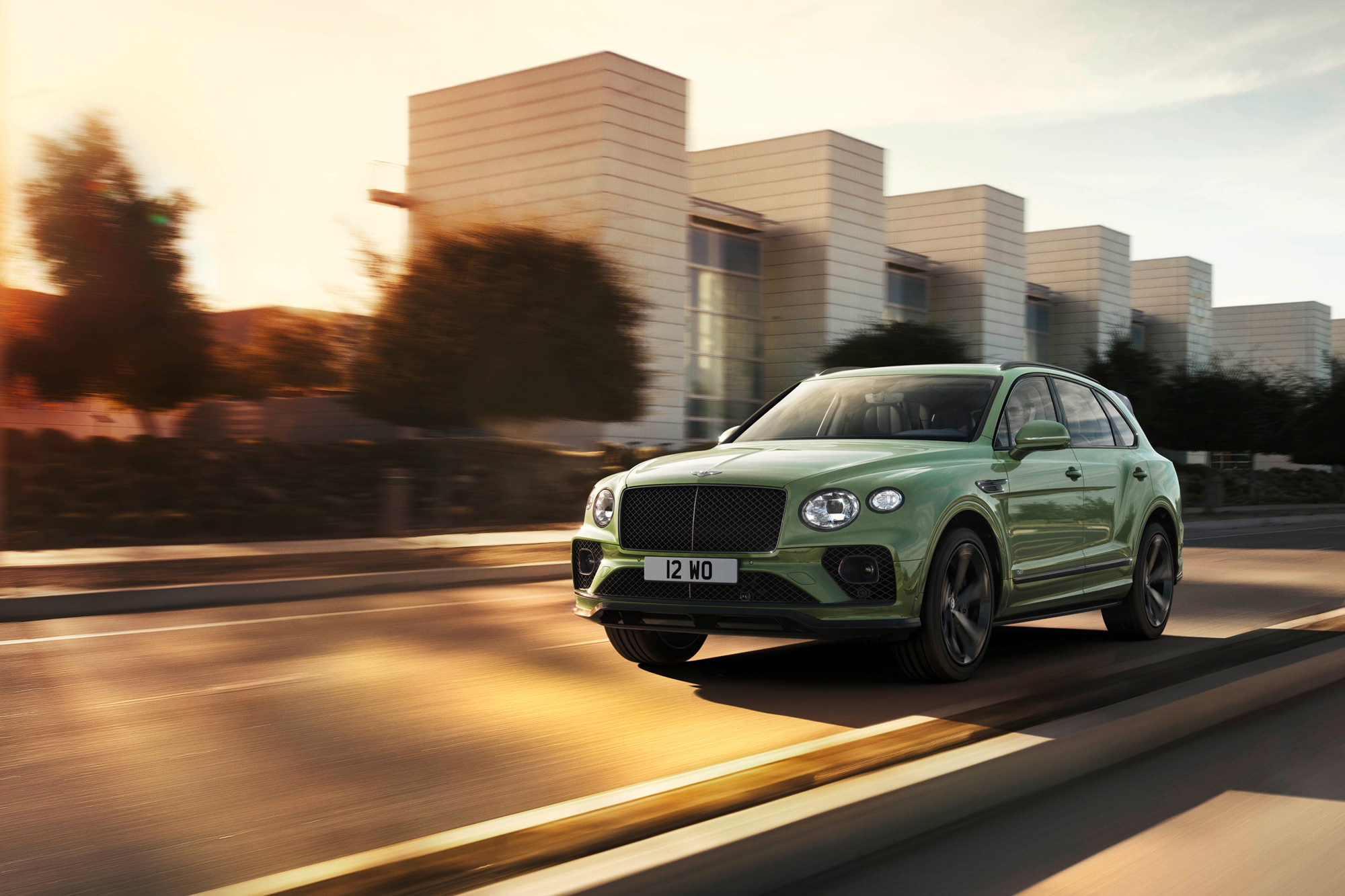How Do People Pay for Their Luxury Cars?
When it comes to financing, leasing, or paying cash for cars, the wealthy are just like the rest of us. But the ultra-wealthy? That’s another story.
 Bentley
Bentley
Sales of cars over $100,000 increased significantly between 2019 and 2021, according to data from Cox Automotive, a giant in auto industry research. While still a miniscule portion of the overall market, these ultra-luxury vehicles saw their share increase by more than 50%. In all, according to Cox analysts, 76,550 new vehicles sold for more than $100,000 last year.
While one might presume that these customers just show up at the dealership with a duffel bag full of cash, at this level, outright purchases are in the minority. Overall, only 8.5% of these high rollers paid cash. Around 31% leased and 60.4% took out a loan with an average payment of $2,201 and an average term of 56 months. For comparison, the general market in 2021 saw 9% of buyers paying cash, 20% leasing, and 70% taking out a loan.
But according to Cox data, this high-end category is dominated by aspirational types buying Range Rovers and Mercedes-Benz S-Classes, which retail for around or just above $100,000. Escalating into the upper echelons, these ratios shift significantly.
The Wealthiest Buyers Have Cash to Spend
“Prior to the pandemic, throughout the segment, and at Bentley, we were leasing our products at about 45% of annual sales,” said Mike Rocco, the venerable British brand’s North American vice president of sales operations. “But, now, when you look at the actual percentage of our customers and how many lease, finance, or pay cash, it comes down to 20% leasing, 20% financing, and the rest (60%) making a cash purchase.”
This shift to purchasing is being driven by cheap money, combined with the current strength of the ultra-luxury automotive market in both the new and pre-owned categories.
“With retail financing rates being as low as they have been, owning a car or financing a car became more attractive,” Rocco said. “So, it basically created parity between a lease payment, which is usually lower than a retail payment. They’re now about the same.”
If a customer leases a Bentley Bentayga SUV for 36 months with $20,000 down, they’ll carry a monthly payment of $3,200. Financing that same car over 72 months—a bit over the average duration, but not out of line with current trends—yields a nearly identical payment. “The difference is, obviously, with the retail piece, clients have equity in their car. And they know that the market is incredibly strong right now, so they know they can bring that retail car in, which they own, and they can either trade it in, or sell it back to the dealer.”
For those clients who do elect to take out a loan, financing is readily available. According to Cox, nearly all of the ultra-luxury brands have captive lenders. For the most part they’re simply lending at standard interest rates, though Rolls-Royce is currently offering special financing rates and lease deals on its flagship Phantom sedan, which starts at $455,000.
Bentley provides loans through its Bentley Financial Services division, but the brand respects the fact that some clients will find their own financing. “Because of the nature of their businesses, they may have connections with other banks, and they’ll utilize those,” Rocco said.
The Rarest, Most Expensive Cars Can’t Be Financed
At the highest ends of the market, however, financing is not an option. Bentley clients who are fortunate enough to be selected to purchase one of the brand’s special limited-edition vehicles—like its $1.9 million Bacalar roadster, or its $2.1 million Blower Reproduction series—must pay in cash, though not in the aforementioned duffel bag.
“I don’t know of anybody who wrote the full check up front,” Rocco said. “It’s in installments as the project moves forward.” This differentiates the brand from others, like Lamborghini, which has asked top customers to shell out millions of dollars for a limited-edition car, in advance, sight unseen.
The Rich Don’t Need to Trade in a Car to Buy a New One
Because these owners tend to maintain a fleet of vehicles, Rocco said that Bentley clients are significantly less likely than the general car buying population to dispose of a car every time they purchase one. Many thus tend to hold onto their cars longer than average, even for decades, before selling. This can lead to some interesting exchanges. “I think some of our dealers would absolutely take a 50-year-old car on trade,” he said. “A lot of them have been dealers for a while and certainly appreciate the heritage vehicles and older models.”
And for those customers who want to conduct business with allegedly untraceable funds, options exist at this level of the marketplace. “We have had a few of our dealers—one in Greenwich, Connecticut and one in Houston, Texas—they did sell vehicles to people using Bitcoin,” Rocco said. “And that’s how the transaction took place.”
Written by humans.
Edited by humans.
 Brett Berk
Brett BerkBrett Berk is a New York City-based writer who covers the intersection of cars and culture: art, architecture, books, fashion, film, politics, television. His writing appears regularly in top-tier automotive and lifestyle publications.
Related articles
View more related articles